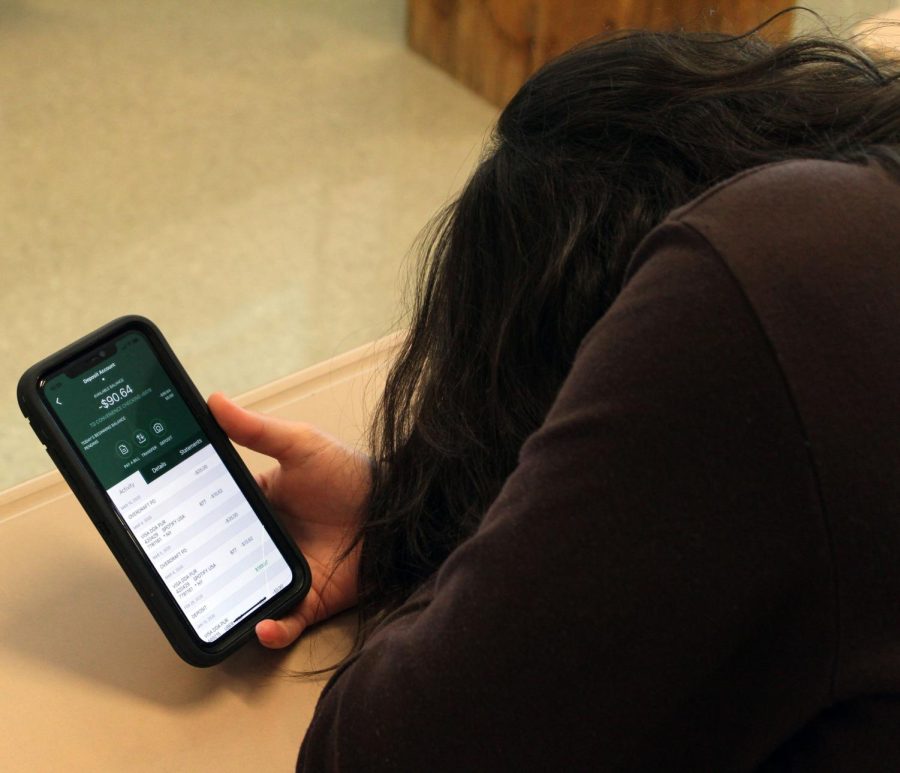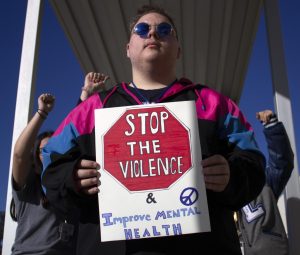Opinion: All Americans Deserve Easy Access To Affordable Mental Health Care
Affordability of healthcare is one of the biggest setbacks for those suffering with their mental health.
February 9, 2023
Mental health has been and continues to be a rising issue in America and around the globe. The lack of affordable and available healthcare continuously makes it difficult to find the appropriate help. The stigma around mental health has also proven to be quite detrimental, as those suffering will decide not to reach out for help due to the worry of judgment. A multitude of factors contribute to the rising rates of mental illness and the results of those illnesses when untreated.
Easier access to mental health resources and services is vital for not only the youth of America, but for all age groups.
Without treatment, mental illnesses can result in substance abuse, suicide, incarceration, homelessness, instability in daily life, chronic physical health issues as well as chronic pain and the worsening of initial mental illness. The consequences are not limited to just this short list. In fact, there is a lengthy list of the consequences of not being able to get treatment for mental illnesses.
Affordability of healthcare is one of the biggest setbacks for those suffering with their mental health. Even though the healthcare system has reduced insurance premiums for those suffering with mental health conditions, the premiums and copayments are still far from affordable. The growing shortage of psychiatrists along with the exceedingly high demand for mental health services leads to limited access and a long wait to have an appointment set. Of course the COVID-19 pandemic and the effects of it raised the need for mental health care exponentially. According to the World Health Organization, “COVID-19 has sparked or amplified much more serious mental health problems. A great number of people have reported psychological distress and symptoms of depression, anxiety or post-traumatic stress. And there have been worrying signs of more widespread suicidal thoughts and behaviors.” With the combination of COVID-19, the growing shortage of psychiatrists and the cost of mental health care, many people are left struggling with no way to get help.
Many low-income families or individuals don’t have the funds to afford therapy which is caused by many therapists and psychiatrists not accepting insurance. Regardless of whether therapists and psychiatrists want to help people, if their reimbursement rates are too low, they can’t sustain an ideal life for themselves. Thus leading them to either work with only a select few insurers or not accept insurance at all. If reimbursements rates didn’t vary as much as they do, therapists and psychiatrists wouldn’t have to avoid accepting insurance to have a fitting salary for their lifestyle. However, it isn’t only the reimbursement rates keeping these mental health providers away, it’s also dealing with the insurance companies. There have been laws passed to address this problem such as The Mental Health Parity and Addiction Equity Act, which is supposed to prevent insurers from imposing unnecessary or excessive limitations on certain mental health care benefits. There is also the Affordable Care Act which requires insurance companies to offer health plans with sufficient provider networks. While this is a great starting point, the next step is actually enforcing the rules set. For example, Centene, which is one of the largest Medicaid insurance programs, faced a class action lawsuit in 2018 for failure to comply with these rules. According to an article published by Modern Healthcare, Centene is expected to lose 2.2 million Medicaid members this year. The supply and demand imbalance adds to the ongoing problem. If there is an abundant need for therapy across the nation, that also comes with the abundance of those willing to pay out of pocket and ultimately mental health providers will avoid accepting insurance in order to make more money from individuals paying out of pocket for mental health care.
There are many solutions to these concurrent issues which don’t include making health care completely free. Many individuals opposed to making mental health care more affordable claim that they’re worried about the raising of taxes. If health care was free across the board, then individual states as well as the national government would eventually raise tax rates to pay for health care in advance, consequently leading to a different group of people experiencing diverse financial issues. In essence, expensive health care as well as free health care is not a solution because it just targets specific groups. Solutions could include raising reimbursement rates, sliding-scale therapy, telehealth and raising funds for mental health care. Sliding-scale therapy means charging patients based on their income rather than what their insurance may or may not cover. For instance, if someone were to have an annual salary of $25,000 dollars a therapist may charge them $25 dollars per session, whereas someone who makes $95,000 dollars a year may be charged $95 dollars per session. This may only be a temporary fix, though, taking into consideration that if a mental health provider’s clientele is majority low-income, they would be sacrificing their salary. Also, if reimbursement rates were raised and less strict, mental health providers could accept more insurance, resulting in the ability to provide care for patients while not sacrificing their salary. Telehealth has been more widespread since the pandemic, and can be a cheaper alternative than in-person healthcare. If mental health providers didn’t need to pay rent for an office space, and they can do it from home, that may lower their rates. Of course, it isn’t better than having good insurance, but there are solutions.
Affordable and accessible mental health care is essential for the wellbeing of American citizens. There are understandable concerns when raising and lowering prices for health care, but there are solutions that don’t include an extreme. If mental illness complaints and issues continue to rise while access to mental health care providers sinks, the repercussions will be dire.



